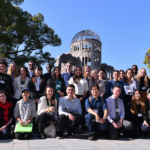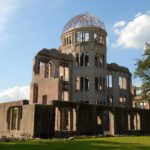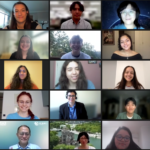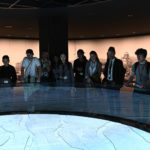Hiroshima-ICAN Academy on Nuclear Weapons and Global Security 2023: Interviews with Participants
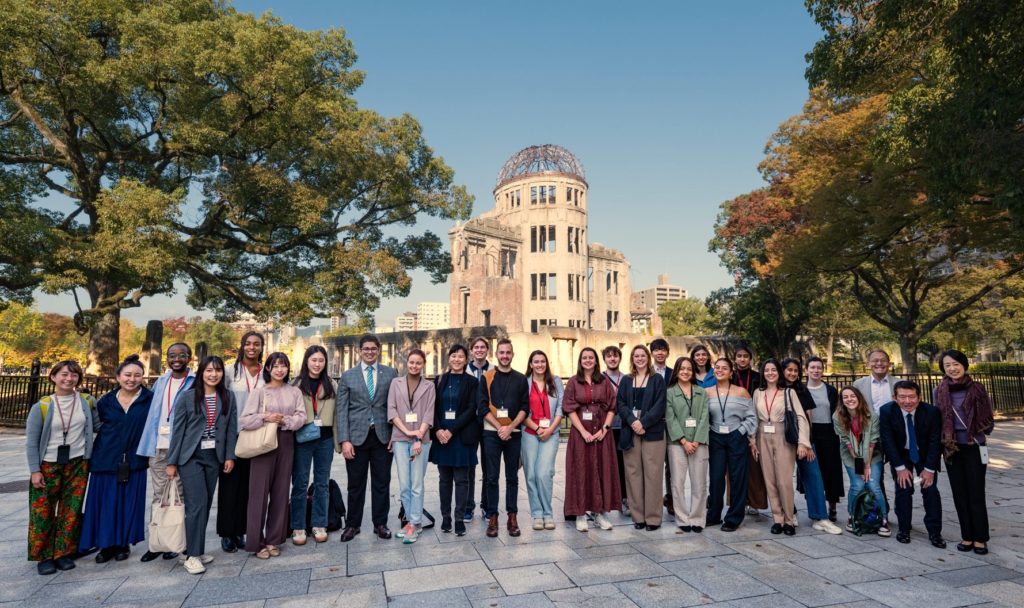
Hiroshima Prefecture has been hosting the Hiroshima-ICAN Academy on Nuclear Weapons and Global Security in collaboration with the International Campaign to Abolish Nuclear Weapons (ICAN) since 2019. The Hiroshima-ICAN Academy aims to nurture leaders who can be active on the global stage through the conduct of training on nuclear weapons and security. This year, the Hiroshima session was held from October 24th to 27th, 2023, following five webinar sessions. The theme of this year’s Academy was “nuclear weapons and global risks.” 22 young participants from 12 different countries gathered in Hiroshima to take part in various programs, including interacting with A-bomb survivors. We spoke to two of the participants, Mr. Dylan Barker-Duggan (UK) and Ms. Sudhanshita Arora (India), about their impressions of the Academy.
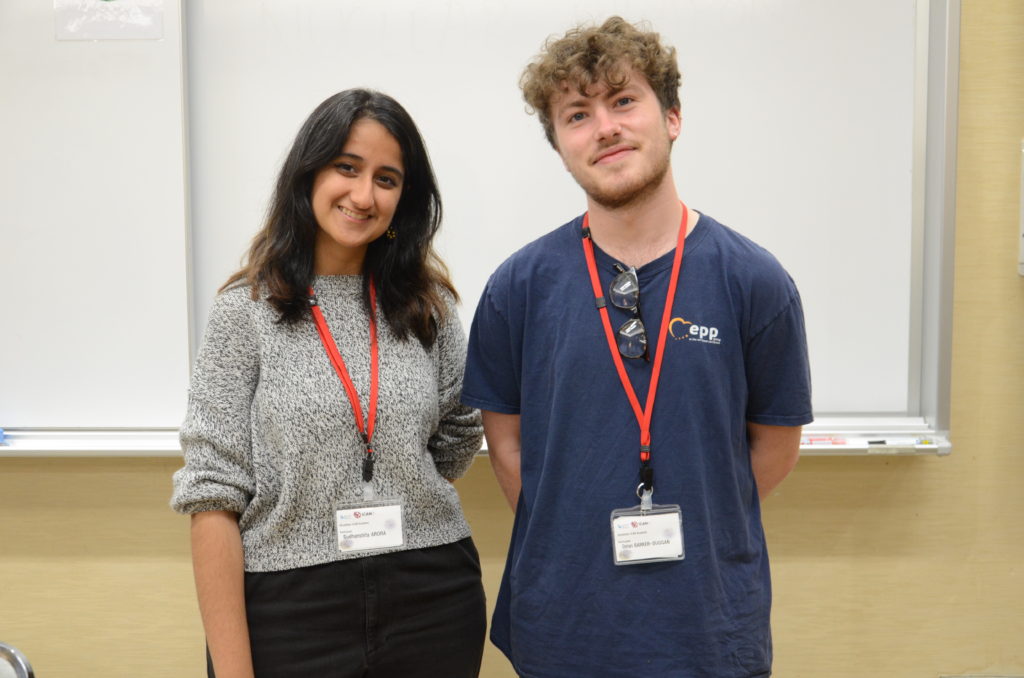
Ms. Sudhanshita Arora (left) and Mr. Dylan Barker-Duggan (right)
●Why did you apply?
(Dylan)
Since I was 15 years old, I have participated in rallies for the abolition of nuclear weapons and reflected on the subject of peace. The British government has a nuclear program known as Trident, to which a significant portion of the national budget is devoted. I am skeptical of it, and when I heard about the Hiroshima-ICAN Academy, I thought I could meet young people from other countries who share my passion for the abolition of nuclear weapons.
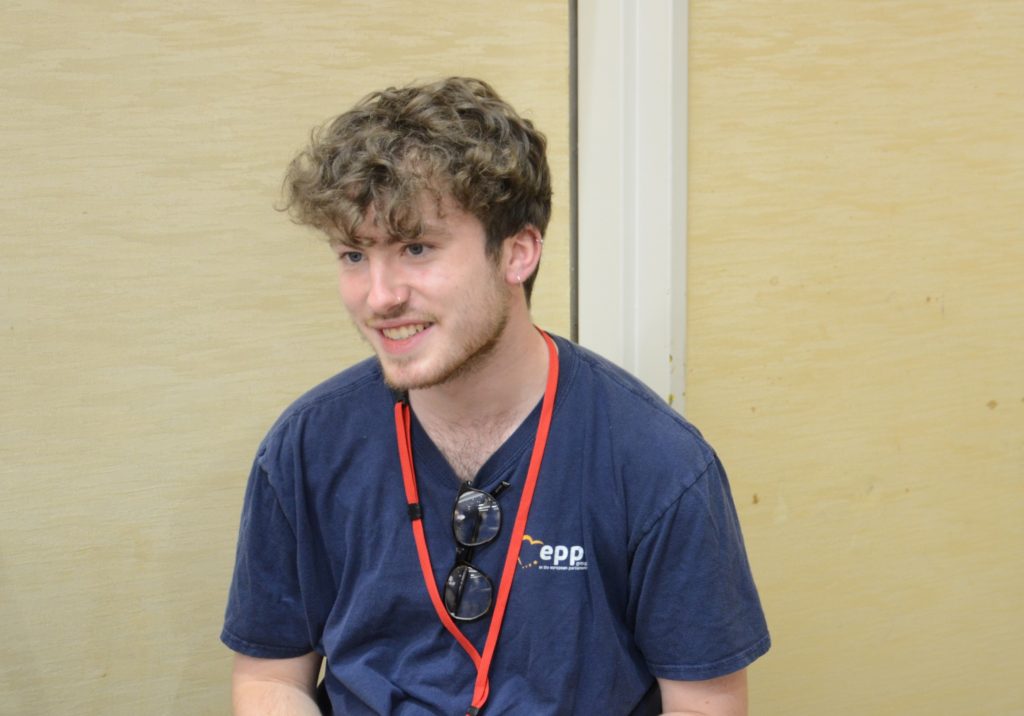
(Sudhanshita)
I am a member of the Soka Gakkai. Ikeda Daisaku (died November 15, 2023, after this interview), honorary president of the Soka Gakkai, presents a peace proposal at the United Nations every year. After reading books that offer an overview of these peace proposals, I too have come to think seriously about peace, and I have had more opportunities to discuss efforts that I can participate in to promote world peace at my university classes and club activities. In the midst of all this, two of my seniors at the university participated in last year’s Hiroshima-ICAN Academy and shared their various thoughts with us. As I listened to them, I started to feel increasingly strongly that it was something I wanted to experience myself, so I decided to apply for the Academy this year.
●What left an impression on you?
(Dylan)
The stories of the A-bomb survivors left the deepest impression on me. After listening to their stories, my attitude toward nuclear weapons changed completely. They told us that they had been hiding the fact that they were victims of the atomic bombing for a long time because they were afraid of being discriminated against. I was very surprised by this and felt that this fact needs to be shared. I had the impression that most people who speak out against nuclear weapons in the UK are older people, but when I came here, I found out that many young people here are also working to achieve peace. Seeing that gave me the courage to do something about it myself.
(Sudhanshita)
For me, it was also the stories of the A-bomb survivors. Despite their efforts to achieve peace, the survivors also had many regrets. For example, they were the only ones who survived but could not give water to those who were asking for it. Also, nuclear weapons continue to exist despite their calls for abolition, and it seems difficult for them to achieve this goal while they are still alive. When I heard this, I started to feel very strongly that I simply had to share this with other people and do it while the A-bomb survivors are still alive.
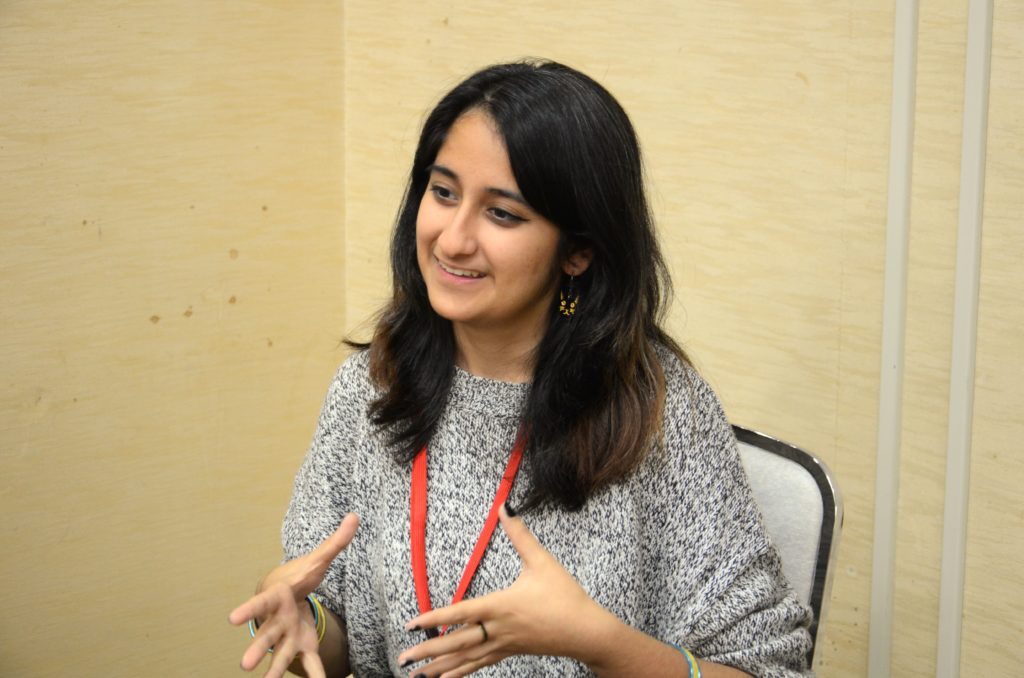
●What did you feel when you arrived in Hiroshima?
(Dylan)
When I saw the Atomic Bomb Dome, I was once again struck by the force of the atomic bomb, thinking to myself, “Is this the only building left standing?!” The exhibits at the Hiroshima Peace Memorial Museum were also very shocking, and it felt like I had been punched in the gut when I left the museum. However, the evening sky and Peace Park I saw after that were so beautiful… I remember being struck by the contrast between the tragedy of the atomic bombing and the beauty of peace.
(Sudhanshita)
I initially came to Hiroshima because I wanted to participate in the Hiroshima session after hearing about it from my seniors who had taken part in it, but actually coming to Hiroshima and visiting the Hiroshima Peace Memorial Museum had a really profound impact on me. I believe that visiting the Hiroshima Peace Memorial Museum and learning about the truth of the destruction caused by the atomic bomb will convince even those who accept the use of nuclear weapons to change their opinions.
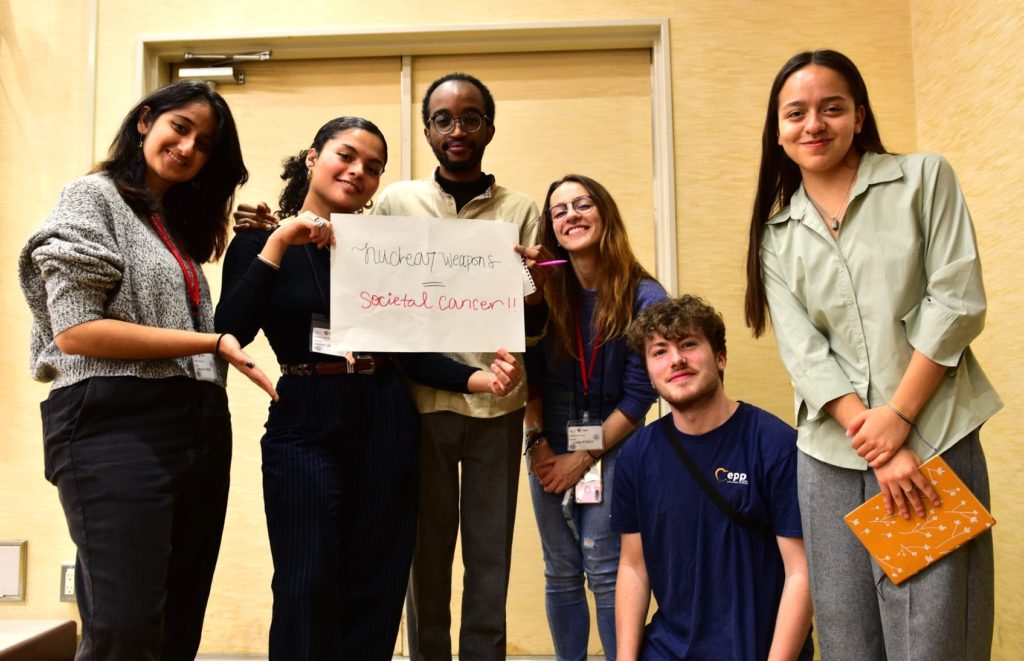
●What would you like to do in the future?
(Dylan)
I would like to share the stories of A-bomb survivors with more people. I am still not sure how I will go about doing this, whether online, through face-to-face presentations, or by holding events at universities for interested students… but I would like to share the stories of A-bomb survivors with others. I have also made many friends here. Talking with people from different countries has taught me how to see things from different perspectives. I hope to be involved in efforts that can contribute to international peace in the future, such as working for an NGO like ICAN.
(Sudhanshita)
I am not sure how much longer I can stay in Japan, but I hope that by getting to know the people of Hiroshima through the Academy, it will be possible to facilitate further exchange between students in Soka University and Hiroshima University, for example. Like Dylan, I would like to share the stories of A-bomb survivors with my family and friends, and with as many people as possible, in India. I am uncertain how long more A-bomb survivors will be able to speak out against nuclear weapons given their age, so I hope I can help to carry on their legacy in any way I possibly can. In the future, I also hope to carry out research that explores peace from gender-related perspectives.
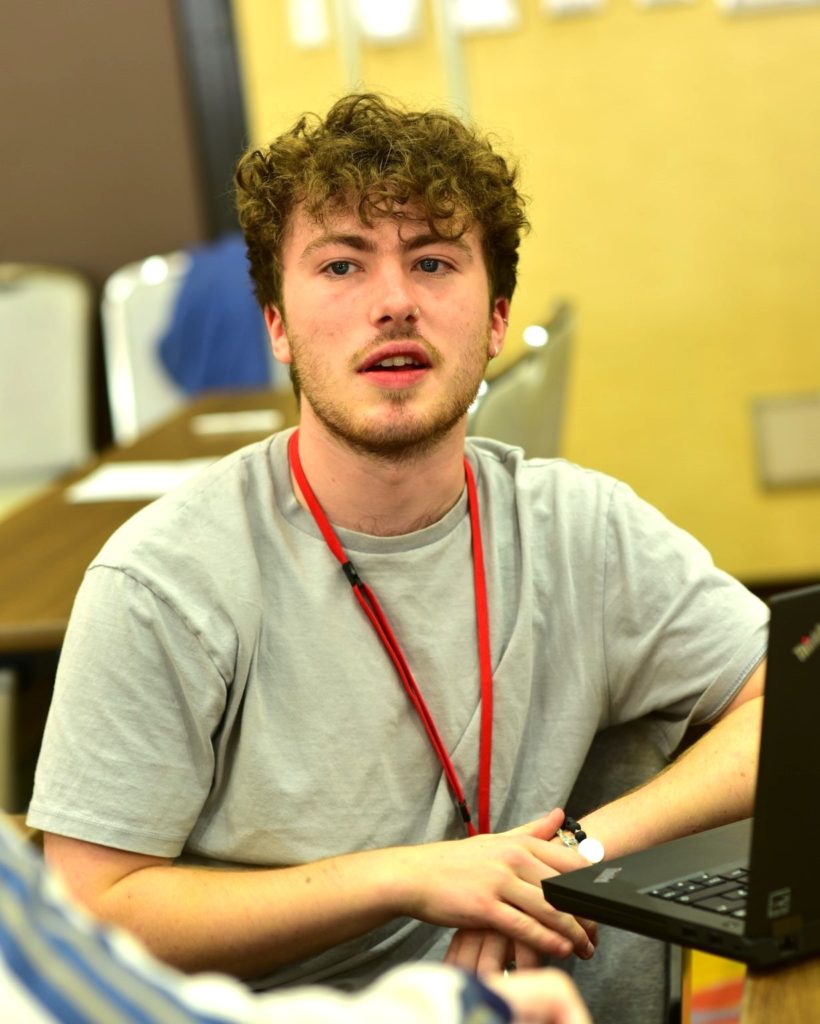
●Dylan Barker-Duggan
Nationality: British
Affiliated university: University of Bradford (Peace Studies Department)
Dylan Barker-Duggan is the UK representative for the Youth Meeting of States Parties (MSP) for the Treaty on the Prohibition of Nuclear Weapons (TPNW). He is a member of the Campaign for Nuclear Disarmament (CND), a British anti-nuclear movement organization.
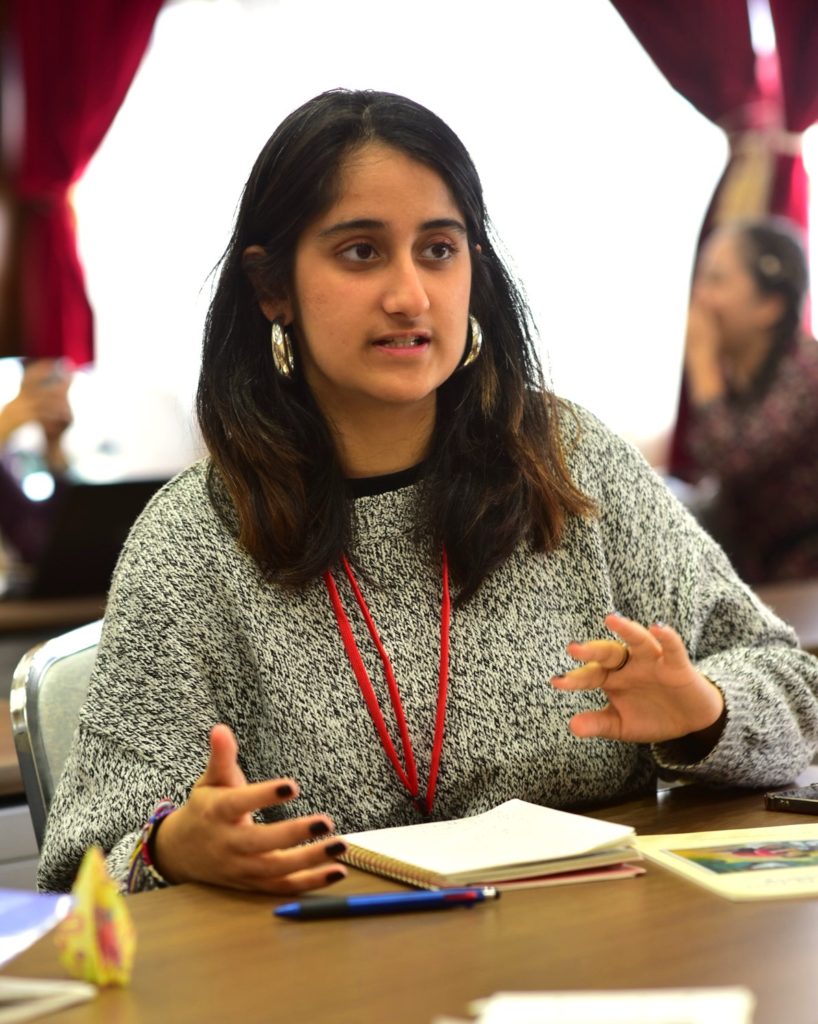
●Sudhanshita Arora
Nationality: Indian
Affiliated university: Soka University (Faculty of International Liberal Arts)
Sudhanshita Arora majors in leadership studies at the university and is the chairperson of the International Student Committee at the university.
*Japanese only
Tags associated with this article



